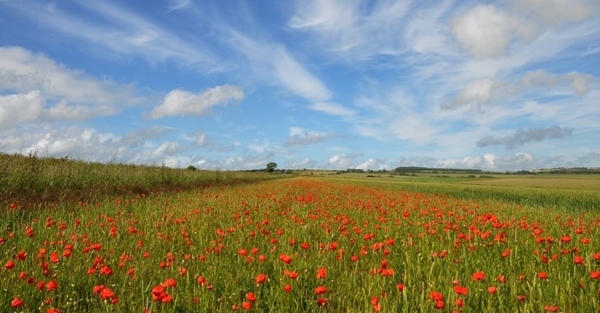
The Game & Wildlife Conservation Trust welcomes the publication of a new report on insect decline and food security by the Science, Innovation and Technology Committee.
As the report makes clear, we must halt the decline of insects and other invertebrates for both biodiversity and food security. GWCT research at the Allerton Project and through the Sussex Study has shown that this is a complex issue with the impact of farming practices and pesticides often highlighted.
It is difficult to untangle these factors from other drivers of change such as climate change, extreme weather events, and invasive species. As a result, we hope that Government considers insect declines in a holistic way rather than focusing on individual factors, as we must tackle everything we can that is causing these declines, whilst being aware of the inevitable trade-offs.
It is encouraging to see the Sussex Study cited as one of three examples of core evidence of invertebrate declines, as this long-term GWCT study provides a vital dataset of the abundance of insects across the same sites for more than 50 years. By collecting these data alongside crop type, crop disease, arable flora, pesticide use, and farmland birds, we can interrogate these complex relationships and are in the process of publishing a paper assessing our findings.
We also welcome the intention of creating a National Invertebrate Strategy to address the needs of diverse invertebrate species. As mentioned in our written evidence submission, focusing only on bees as pollinators may distort policy outcomes. We are delighted to see the suggestion that “the Government should intervene by offering support to charities, landowners, and farmers who spearhead significant efforts in addressing insect decline outside of the most charismatic species.”
The ecosystem services delivered by pollinators outside of those who make the headlines – butterflies, moths, and bees – are considerable and we must also monitor the natural predators of crop pests to understand their impact and provide better guidance on integrated pest management. This offers a way forward for agriculture to help to minimise the use of pesticides, in particular insecticides.
The report makes the recommendations that “the Government and its agencies like UKRI should produce a clear strategy for sustaining long-term insect monitoring research” and that “funders should commit to the longer-term funding which is needed for insect monitoring projects”, a view that we share.
The Sussex Study, one of the world’s longest-running monitoring projects of the cereal ecosystem – including insects, is only made possible by the generosity of GWCT members and supporters, alongside the cooperation of kind-hearted farmers with a passion for understanding what’s happening on their farms. We would welcome support if the Government wishes to highlight the importance of long-term monitoring.
Our consultation response also highlighted GWCT guidance, as shown in the seven principles below:
- Follow integrated pest management guidelines and avoid using insecticides whenever possible. Don’t spray headlands.
- Don’t be too tidy. Try to tolerate a few more weeds in crops.
- Establish new habitats that are insect-rich, e.g., beetle banks, nectar-flower mixes, wild bird seed, herb-rich grassland, conservation headlands, cultivated arable margins, and ponds.
- Only cut hedges every two years to allow flowering and berry production.
- Avoid contaminating the hedge base with fertilizer and pesticides.
- Adopt minimum tillage and return crop residues to the soil.
- Grow alternative livestock forage – legumes, especially sainfoin and whole crop silage.
We would welcome the opportunity to be called as a witness by the Science, Innovation and Technology Committee in future sessions, as we feel years of GWCT research, in Sussex and at Allerton, can uniquely support their twin goals of reversing insect decline and improve our food security.